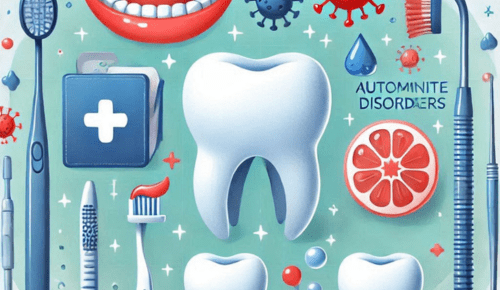People with autoimmune disorders have a hard time taking care of their teeth. If you have conditions like lupus, rheumatoid arthritis, or Sjögren’s syndrome, you might face dental problems. These health conditions can make it more difficult to keep your teeth healthy. However, that should not be an excuse not to look after your teeth and gums.
When your immune system attacks healthy cells in your body, it can cause issues with your oral health. Your gums may become more likely to get infections, or your mouth may become dry easily. All of these factors can lead to an increased risk of tooth decay. Moreover, some medications used to treat autoimmune disorders can also affect your teeth.
When it comes to people with autoimmune disorders, general dental care tips may not be enough. That is why it is important to have a dentist in Burlington who specializes in treating people with complex health conditions. Regular check-ups can help keep your teeth healthy and catch any issues early.
The link between autoimmune disorders and oral health
Your immune system helps protect your body. However, if you have an autoimmune disorder, it can mistakenly attack healthy tissues, including those in your mouth. This can cause problems for your oral health, and you may need extra care to avoid issues.
If you do not get proper care on time, these autoimmune conditions can lead to dental problems that affect both your mouth and your overall quality of life.
What are the common oral health challenges?
If you have an autoimmune disorder, you may face special dental problems. One common issue is dry mouth, also called xerostomia. This happens when conditions like Sjögren’s syndrome affect your salivary glands, leading to less saliva.
Without enough saliva, your mouth can feel uncomfortable and become a place where bacteria grow. This can increase your chances of tooth decay and gum disease. Also, conditions like lupus can cause painful mouth sores and swollen gums, which can make brushing and flossing harder.
Some essential care strategies
When you have an autoimmune condition, you need extra care. Make sure to brush your teeth with fluoride toothpaste at least twice a day and floss every day. These basic steps are important, but you may need to do more. Brush with a soft-bristled toothbrush to protect your sensitive gums, and drink plenty of water to prevent dry mouth.
If you have dry mouth, there are several ways to manage it. You can try using saliva substitutes or sugar-free gum to help your mouth generate more saliva. You can also use fluoride rinses or get fluoride treatments from your dentist to protect your teeth. Remember to avoid things that can make dry mouth worse, like alcohol, caffeine, and tobacco.
Some diet and lifestyle considerations
Eating a balanced diet is very important for your oral health, especially if you have an autoimmune condition. It is important to choose foods that are good for your teeth and avoid those that can make dental problems worse. Further, limiting sugary and acidic foods is important to prevent tooth decay, especially if you have less saliva.
It is also important to manage your stress levels. Stress can make your autoimmune condition worse and affect your oral health. You might have noticed that you tend to clench your jaw or grind your teeth more when you are under severe stress. Such habits can lead to a weakened enamel, which can further cause various types of dental issues.
Oral health matters for autoimmune disorder patients!
If you have an autoimmune disorder, taking care of your oral health is crucial. Conditions like dry mouth, gum disease, and medication side effects can increase your risk of tooth decay. Schedule an appointment with a Burlington dentist who specializes in treating patients with complex conditions!




